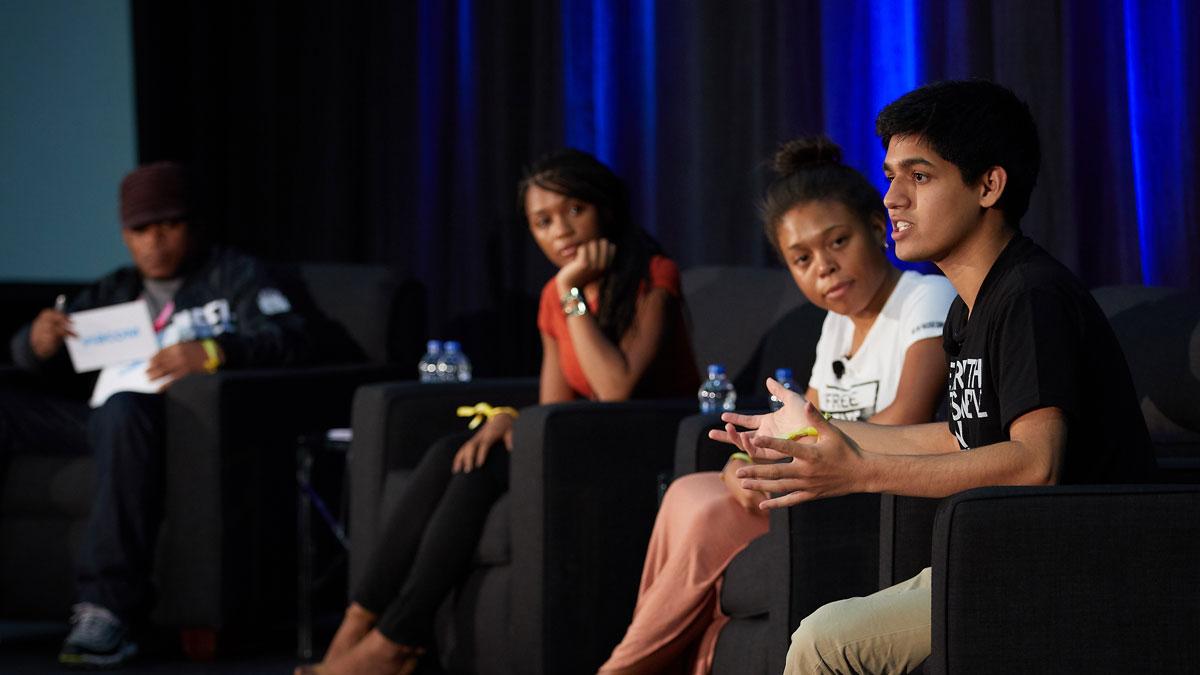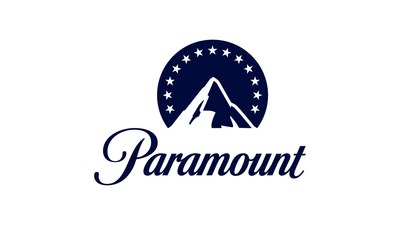What to Know About the Next Generation of Activists
A conversation with 19-year-old activist Ziad Ahmed

Originally published on V By Viacom
At 19 years old, Ziad Ahmed has become one of the young voices in a growing movement around creating social change. In describing his peers—Generation Z as they’re labeled—he says they have one goal in mind: Change.
Ahmed, the founder of the organization Redefy and the Gen Z consulting firm, JÜV Consulting, joined fellow activists on the “The Power of Youth to Create Change” panel at Vidcon on June 24. The panel was part of Viacom’s launch of its global initiative, Generation Change, which elevates and empowers young people driving change.
The rising Yale sophomore joined Nza-Ari Khepra, co-founder of Project Orange Tree, an awareness campaign created to educate youth about violence in the wake of the murder of her friend, Hadiya Pendleton, who was killed in a drive-by shooting in 2013; Kiyomi Calloway, student activist and founder of the No Tolerance Movement; and moderator Sway Calloway, the MTV News producer and former “TRL” correspondent.
Before taking the stage, Ahmed spoke with V by Viacom about what it means to be an activist, misconceptions about his generation, and why he decided to join Viacom’s Generation Change campaign.
V by Viacom: Why did you want to get involved in Generation Change?
Ziad Ahmed: I fundamentally believe we are the generation of change. I think that Viacom had a very clear idea and was right in the premise that a lot of young people want to organize, want to activate, want to mobilize, but don’t necessarily have the infrastructure to start or to further their work.
I don’t think me being on this panel is saying that I agree with everything any brand or corporation does. It’s saying that I believe in this campaign, I believe in Generation Change.
V: How is corporate activism influencing Gen Z’s activist efforts?
ZA: It’s an important shift that corporations/companies are saying: We want to use our immense resources to invest in this work, to invest in young people who are saying ‘We’re going to disrupt the status quo.’ I think that the ethos of our generation is really to interrogate the how, the why, and are doing that in all sorts of creative ways.
A campaign like Generation Change [says] ‘You have this passion, this ethos….we’re going to help you get further, we’re going to amplify you further.’ I think that’s a really powerful idea—one that resonates and needs to be expanded.
Viacom’s putting their money where their mouth is and not that any corporation is perfect but I think it’s a step in the right direction. It’s a really timely endeavor when a lot of young people are really angry and disgruntled and distrusting and want to do something.A campaign like Generation Change [says] ‘You have this passion, this ethos….we’re going to help you get further, we’re going to amplify you further.’ I think that’s a really powerful idea—one that resonates and needs to be expanded.
V: What does it mean to you to be a youth activist?
ZA: The way I define activism and why I call myself an activist is because I want to be first identified by a desire for change.
To whatever extent I can use my voice and agency to empower young people, I want to do that. If my being here means that more young people can have more resources to do bada** things, like hell yeah I’m here for it. I’m not an idealist, I’m a realist.
I want people to understand that we are ‘generation change’ because we realize how much has to change and we see what’s at stake.
V: How do you feel about the perception of Gen Z?
ZA: I think that there’s a lot of misconceptions about Gen Z. If there is one message I want to say, it’s that we’re not a monolith. We’re not all passionate about the same things and we don’t all have to agree on every issue, but it’s important to ask questions and to take action.
When I go to the polls, I’m not just thinking about myself and my family, but I’m thinking about people on Native American reservations that I follow on Twitter. I’m thinking about people that I’ve met [at Vidcon] that’ve shared with me their realities. I think that we’re really expanding and challenging the idea of ‘we’ and ‘us’ and that’s powerful. I want people to understand that our time is now, not later, and we deserve an equal place at the table.
I just think people need to realize we can simultaneously lead and listen. I feel like a lot of people view Gen Z leading and starting movements and being like ‘how presumptuous.’ Hell yeah we should be presumptuous, right?
V: What’s unique about the activism of Gen Z?
ZA: Our age does not limit our activism. We can disrupt and challenge now, and we should and must. Families are being separated now. Black people are being brutalized now. It’s the biggest refugee crisis we’ve ever had in modern history, that’s happening now. We don’t have time. We need to be organizing and talking about these things. Schools are being shot up today. It’s wild that it’s a sigh of relief that it’s summer because that means there won’t be a school shooting.
We don’t have the luxury of saying ‘later.’ I want people to understand that we are ‘generation change’ because we realize how much has to change and we see what’s at stake. We need to be interrogating the ‘why,’ like why do we do we do the things that we do? Why do things have to stay the same way?
We all have different agency and access. I’m not saying that we all have the same ability to disrupt, because I have certain privileges that allow me to speak out in the way that I do. What I would like is for every person to think ‘why’ and ‘how’ and to link those two together in whatever way possible.

